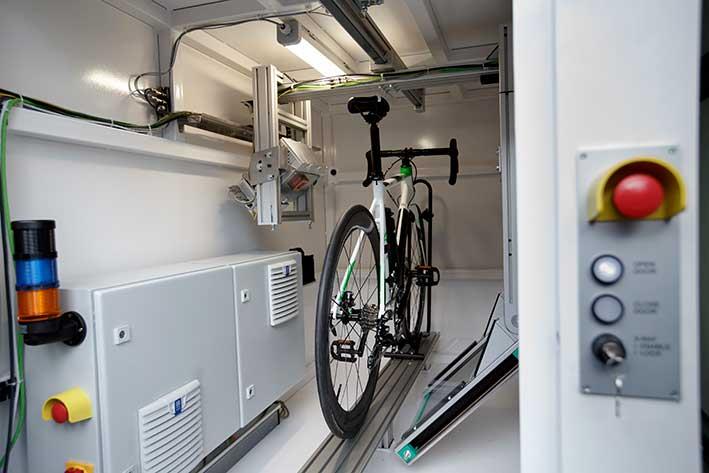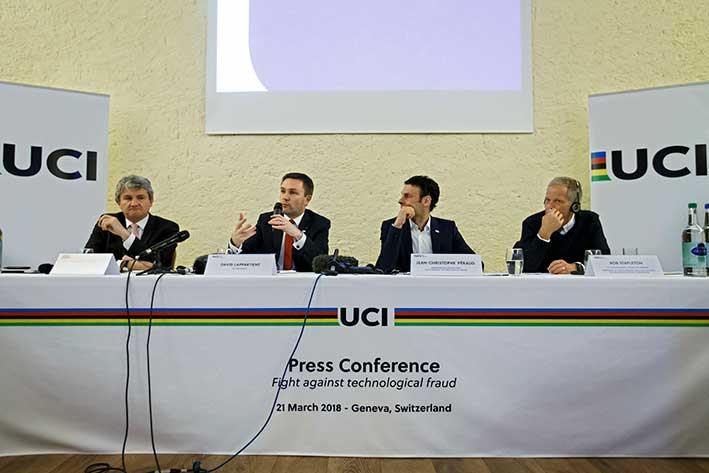The chief of cycling's governing body says it is pulling out the technological stops to deter would-be cheats from sneaking tiny, tough-to-detect motors into their bike frames, as the sport seeks to head off another possible credibility problem after its longtime doping plague.
David Lappartient of UCI made the comments during a media presentation in Geneva to showcase existing and future tools used to scan bicycles — magnetic fields, x-rays, thermal detectors, simple physical checks, and other techniques that could put to rest swirling speculation that some riders might try to get a battery boost.
"The goal is not to find a motor when we look for it, it's of course to show that there aren't any — and that everyone (in cycling) is battling with the same weapons," said Lappartient, whose organization is based in the Swiss town of Aigle.

A bicycle into the X-Ray machine is pictured, during a UCI's press conference about Fight against technological fraud, in Geneva, Switzerland, Wednesday, March 21, 2018. (Salvatore Di Nolfi/Keystone via AP)
In particular, UCI officials demonstrated a white trailer in which bikes can be inserted for an X-ray scan that feeds data into a computer. The demonstration claimed to reveal on a laptop screen a motor hidden inside the bike's frame — with the images reminiscent of those a radiologist might use to inspect a broken bone.
UCI is also preparing the rollout of a magnetic tests, which gauge changes in the magnetic field around the bike frame that could help tell in real-time whether bikes are getting an unfair boost. Lappartient said tests are expected over the next nine months, and that he hopes for deployment next year.
No motors have yet been found in a professional road cycling race, though speculation has bubbled up over the years in social media and among some wary fans.

UCI President David Lappartient, 2nd left, sitting next to Gabriele Fioni, left, Deputy Director of CEA Tech, Jean-Christophe Peraud, 2nd right, Manager of Equipment and the Fight against technological fraud of UCI, and Bob Stapleton, right, UCI Management Committee member and President of the Equipment and Fight against technological fraud Commission, informs to the media during a press conference, in Geneva, Switzerland, Wednesday, March 21, 2018. (Salvatore Di Nolfi/Keystone via AP)
"I dare hope that's because there's no motor in the bike," Lappartient said. "Hoping that it doesn't exist, and showing it are two different things: And our goal is to show it."
Ultimately, though — as with the fight against doping — success against possible motorized cheats in cycling could require reliance on whistle-blowers or others in the sport to break a wall of silence that has plagued the peloton in the past.
Lappartient cited UCI's "desire is to protect whistle-blowers. We will take any information that will allow our sport to become even more credible."